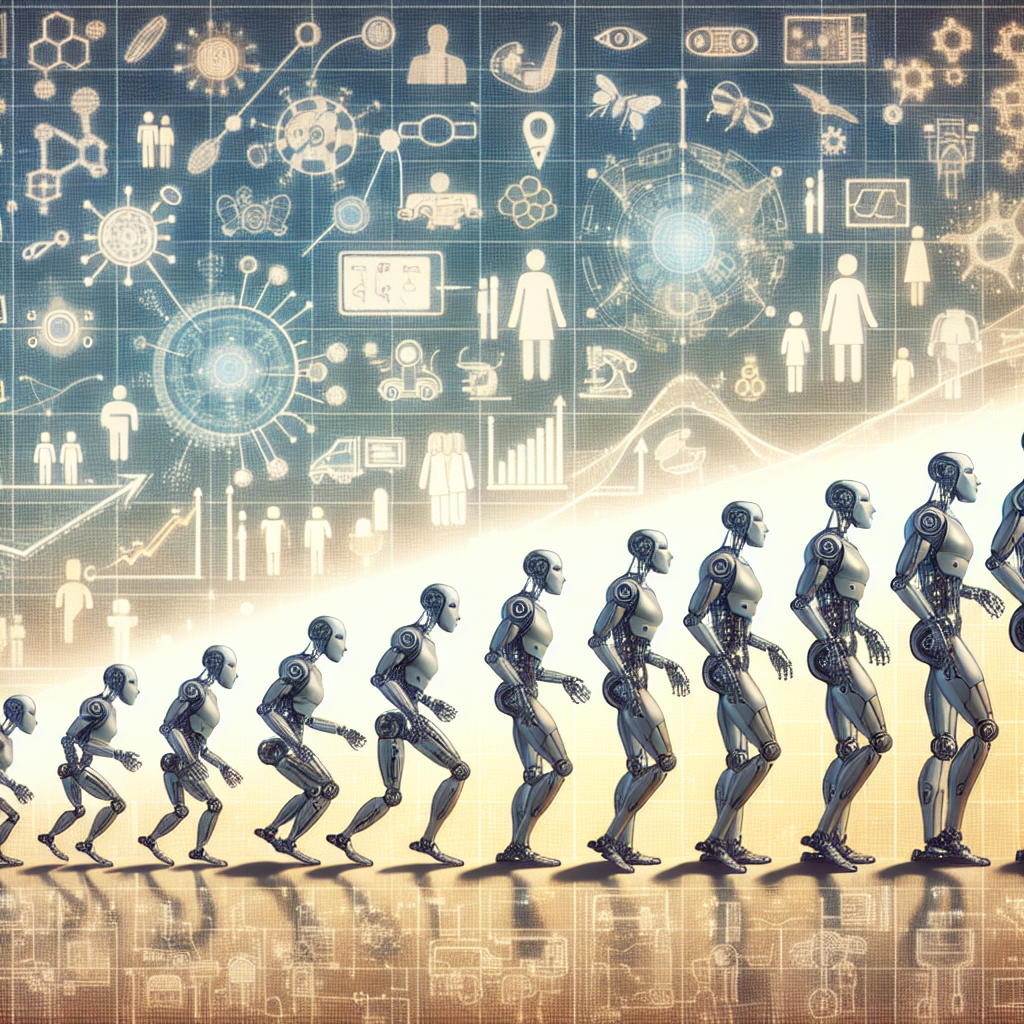The Rise of AGI: How It Will Impact Society
Artificial General Intelligence (AGI) is a topic that has been gaining more and more attention in recent years. AGI refers to a form of artificial intelligence that has the ability to understand, learn, and apply knowledge in a way that is similar to human intelligence. While current AI systems are designed for specific tasks and are limited in their capabilities, AGI aims to create a machine that can perform any intellectual task that a human can.
The development of AGI has the potential to revolutionize society in ways that we can’t even imagine. From advancements in healthcare and education to changes in the workforce and economy, the impact of AGI will be far-reaching and profound. In this article, we will explore the rise of AGI and how it will impact society.
1. Advancements in Healthcare
One of the most promising areas where AGI can have a significant impact is in healthcare. AGI-powered systems can help doctors and medical professionals in diagnosing diseases, analyzing medical images, and developing personalized treatment plans for patients. With the ability to process vast amounts of data and identify patterns that may not be visible to the human eye, AGI can help improve patient outcomes and reduce healthcare costs.
2. Education and Learning
AGI can also revolutionize the field of education by providing personalized learning experiences for students. By analyzing a student’s learning style, strengths, and weaknesses, AGI systems can create customized lesson plans and educational materials that cater to individual needs. This can help students learn more effectively and efficiently, leading to better academic outcomes.
3. Changes in the Workforce
The rise of AGI will also have a significant impact on the workforce. As machines become more capable of performing tasks that were previously done by humans, there will be a shift in the types of jobs available and the skills required to succeed in the workforce. While some jobs may be replaced by AGI-powered systems, new opportunities will also be created in fields such as AI development, data analysis, and machine learning.
4. Economic Implications
The economic implications of AGI are also significant. As machines become more efficient at performing tasks, productivity levels are likely to increase, leading to economic growth and prosperity. However, there are also concerns about job displacement and income inequality, as certain sectors of the workforce may be more vulnerable to automation than others. Policymakers will need to consider these factors when planning for the future of work in an AGI-powered world.
5. Ethical and Social Considerations
As AGI becomes more prevalent in society, there are also ethical and social considerations that must be addressed. Questions about privacy, security, and accountability will become increasingly important as AGI systems are integrated into everyday life. There are also concerns about bias and discrimination in AI algorithms, as well as the potential for AGI to be used for malicious purposes. It is essential for policymakers, researchers, and industry leaders to work together to ensure that AGI is developed and deployed responsibly.
FAQs
Q: What is the difference between AGI and AI?
A: Artificial General Intelligence (AGI) refers to a form of artificial intelligence that has the ability to understand, learn, and apply knowledge in a way that is similar to human intelligence. AI, on the other hand, refers to systems that are designed for specific tasks and are limited in their capabilities.
Q: When will AGI be developed?
A: The timeline for the development of AGI is uncertain, as it is a complex and challenging goal that requires significant advancements in AI research. Some experts predict that AGI could be achieved within the next few decades, while others believe it may take longer.
Q: What are the potential risks of AGI?
A: There are several potential risks associated with the development of AGI, including job displacement, ethical concerns, and security risks. It is essential for researchers and policymakers to address these risks proactively to ensure that AGI is developed and deployed responsibly.
Q: How can AGI benefit society?
A: AGI has the potential to benefit society in many ways, including advancements in healthcare, education, and the economy. By leveraging the capabilities of AGI systems, we can improve patient outcomes, enhance learning experiences, and drive economic growth and prosperity.
In conclusion, the rise of AGI has the potential to transform society in ways that we can’t even imagine. From advancements in healthcare and education to changes in the workforce and economy, AGI will have a profound impact on every aspect of our lives. While there are risks and challenges associated with the development of AGI, the potential benefits are vast and far-reaching. It is essential for researchers, policymakers, and industry leaders to work together to ensure that AGI is developed and deployed responsibly, with a focus on maximizing the benefits for society as a whole.

